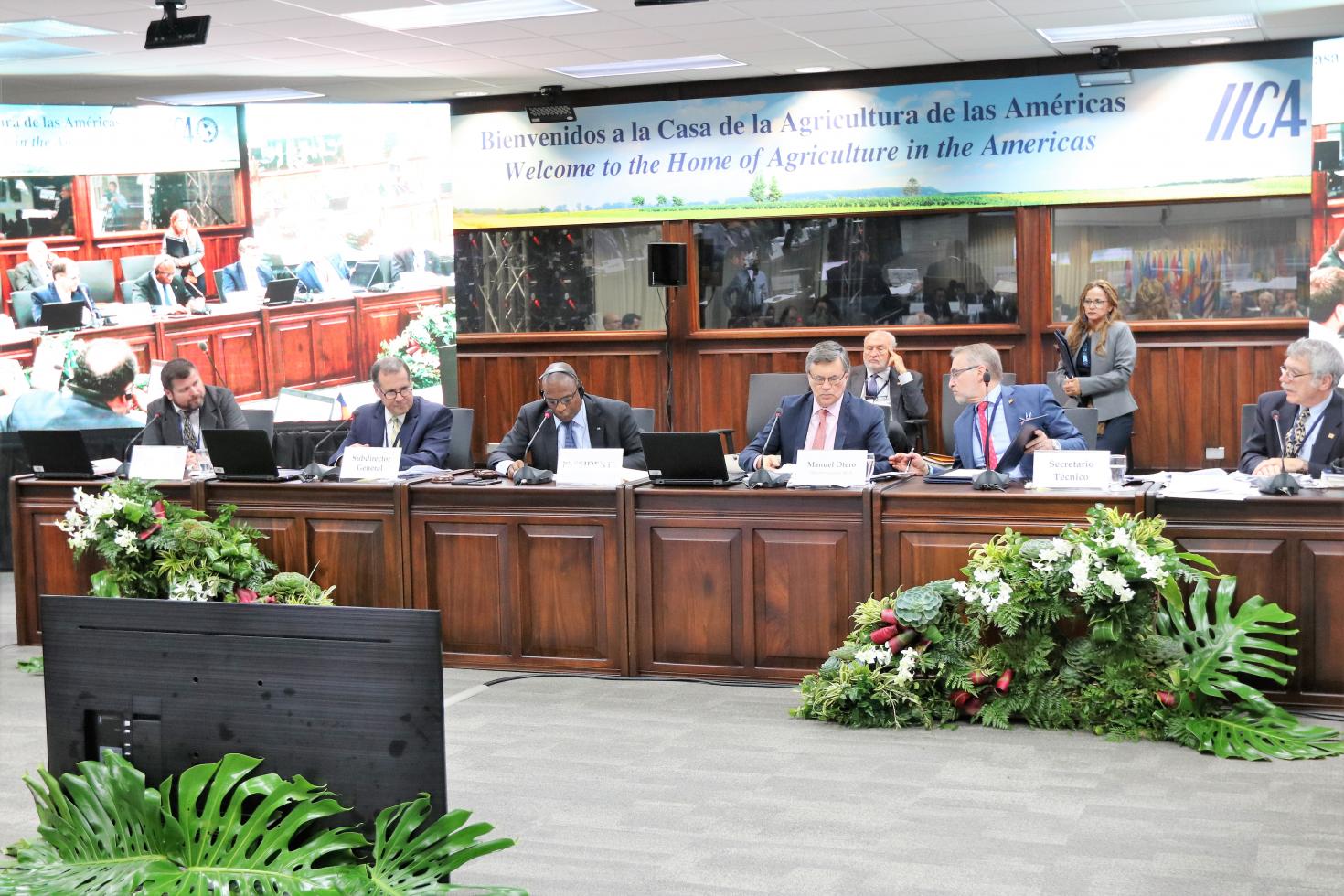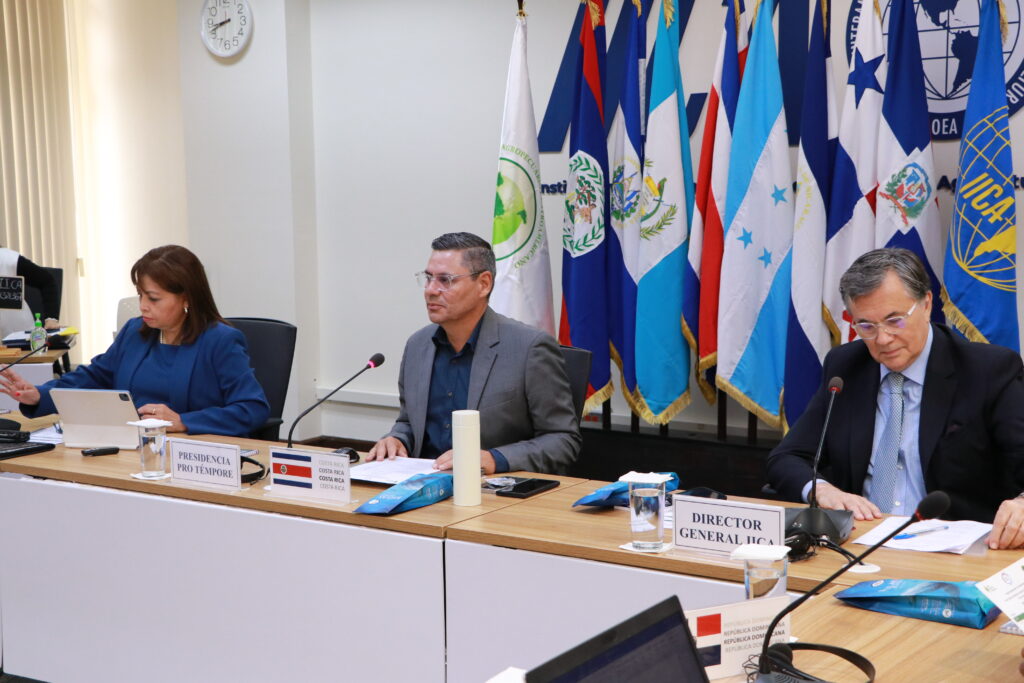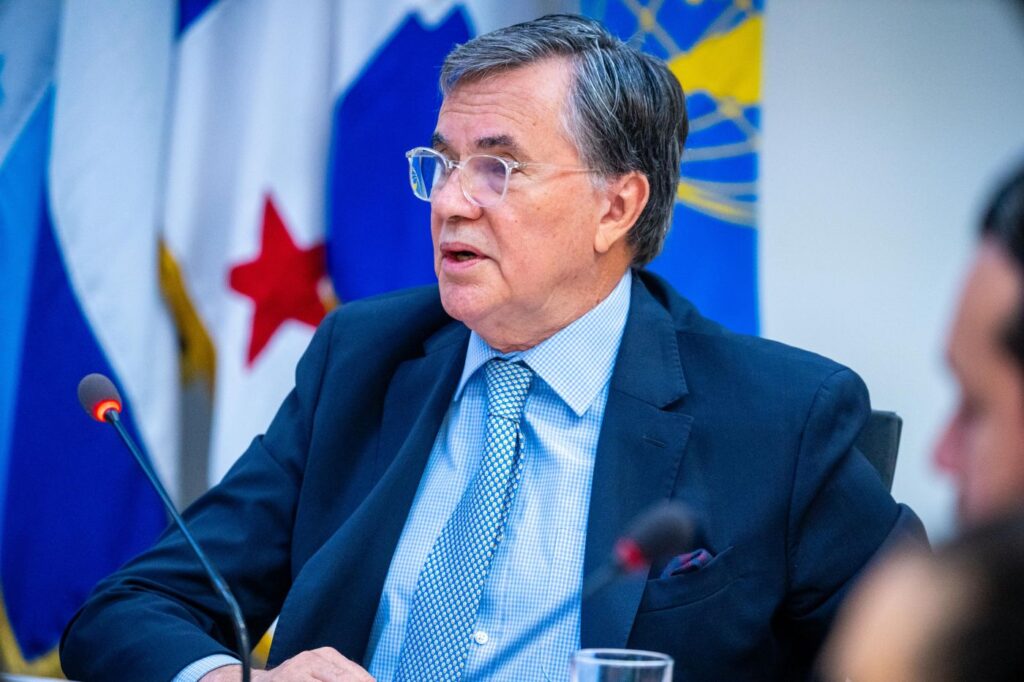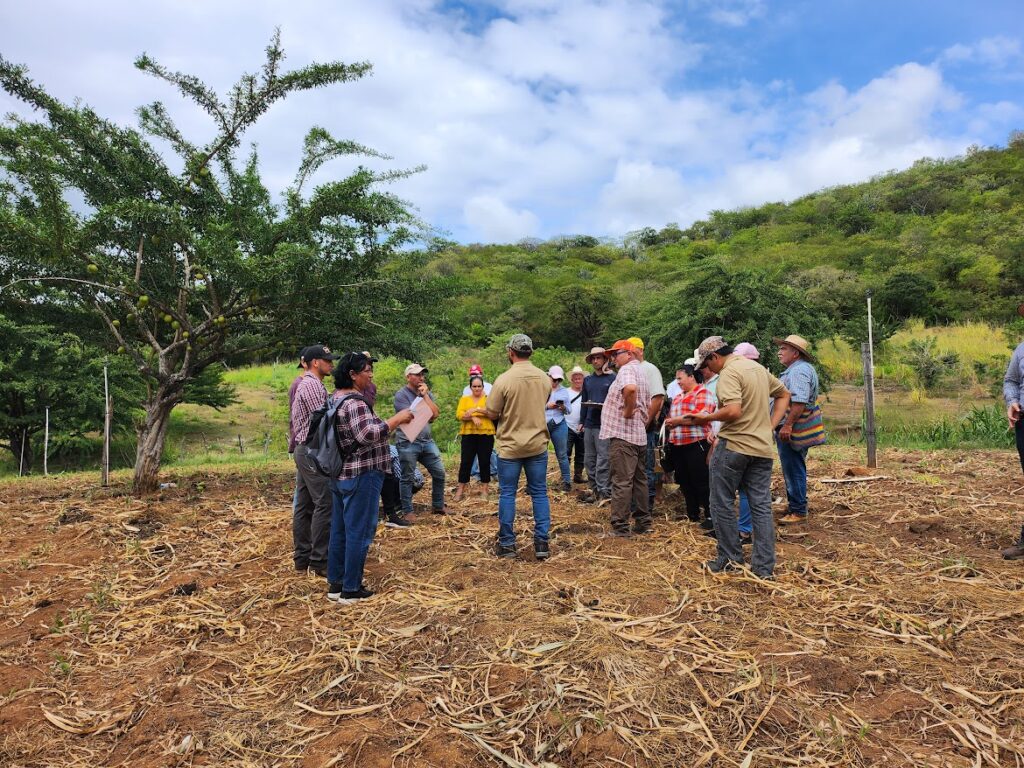Las medidas de renovación institucional implementadas en el IICA están propiciando una actitud proactiva de los países en los órganos de gobierno del Instituto, cuyo Comité Ejecutivo aprobó el presupuesto 2020-2021 y los temas que guiarán la reunión de los ministros de Agricultura de las Américas, que se realizará en octubre en Costa Rica.

San José, 18 de julio de 2019 (IICA). La modernización del Instituto Interamericano de Cooperación para la Agricultura (IICA), caracterizada por medidas de austeridad, desburocratización, flexibilidad, cultura de procesos y reorientación de recursos a ámbitos genuinamente productivos, incentiva la participación de los países miembros en las instancias de gobierno del organismo hemisférico, en cuyo Comité Ejecutivo, que sesionó en Costa Rica por dos días, se remarcó la importancia de profundizar la actualización institucional.
En la reunión de carácter ordinario del Comité Ejecutivo del IICA, en la que participaron delegados de una veintena de países, se aprobó el presupuesto 2020-2021 y los temas que serán ejes de la próxima reunión de la Junta Interamericana de Agricultura (JIA), el máximo órgano de gobierno del Instituto integrado por los 34 ministros encargados de Agricultura de sus países miembros, quienes se reunirán a finales de octubre en San José.
“Las medidas de renovación institucional tienen eco y propician una actitud más proactiva de los países”, dijo el Director General del IICA, Manuel Otero, al término de la reunión del Comité Ejecutivo.
“Se aprobó el presupuesto 2020-2021, que con mucha claridad allana el camino para la asignación de recursos a prioridades del IICA, y fueron aprobados los tres temas que le darán vida al concepto de Sembrando hoy la agricultura del futuro, que son la ruralidad 4.0, el cruce entre competitividad y sostenibilidad, que da lugar a la nueva generación de bioagronegocios, y el tercero que es el acceso a mercados y el papel de la sanidad, asuntos claves para los países”, agregó.
En el marco del Comité Ejecutivo, delegados de Argentina, Brasil, Canadá, Costa Rica, Estados Unidos, Honduras y San Vicente y las Granadinas, entre otros países, expresaron su apoyo a las iniciativas tomadas por la Dirección General del IICA para modernizar la gestión del Instituto y destacaron el papel del organismo en la provisión de políticas públicas sólidas y la construcción de capacidades en los Estados Miembros para una agricultura productiva, eficiente, inclusiva e integrada a los mercados locales y globales.
Los delegados, quienes también afinaron el camino para una ampliación de sinergias entre el IICA y el CATIE (Centro Agronómico Tropical de Investigación y Enseñanza, con sede en Turrialba, Costa Rica), celebraron la renovación del organismo hemisférico especializado en desarrollo agrícola y rural y destacaron las políticas de austeridad implementadas por su Director General.
“Hemos tenido una muy buena reunión de Comité Ejecutivo, ágil y dinámica. Ha sido central la política de reducción de costos, de austeridad del IICA. La viven los países y la deben vivir también los organismos internacionales”, dijo el Secretario de Agricultura de Argentina, Guillermo Bernaudo.
Flavio Bettarello, Secretario-Adjunto de Comercio y Relaciones Internacionales del Ministerio de Agricultura, Ganadería y Abastecimiento de Brasil, destacó: “hubo gran avance en el Comité Ejecutivo en puntos importantes, como la necesidad de que decisiones de reglas multilaterales, bilaterales y locales sean siempre basadas en los mejores principios de la ciencia, la importancia del comercio para pequeña y gran agricultura y la unidad en el combate a las barreras indebidas al comercio de productos agrícolas”. El delegado celebró también los principios de austeridad del IICA.
En tanto, el Secretario de Agricultura y Ganadería de Honduras, Mauricio Guevara, agradeció el “apoyo impresionante del IICA a los proyectos y las actividades de nuestra Secretaría y de todo el sector agroalimentario de Honduras”, y reafirmó “la importancia de una mayor sinergia entre el IICA y el CATIE, algo que debemos a la visión que existe en la actual conducción del IICA”.
Respecto a la JIA, el Secretario Guevara se mostró esperanzado en un trato en profundidad “de los desafíos que nos impone el cambio climático, el financiamiento a nuestros sectores productivos, el acceso a mercados y la agregación de valor”, por lo que caracterizó al foro ministerial como clave “para buscar estrategias conjuntas en torno a problemáticas comunes, que se traducirán en comercio y empleos, que es lo que necesitamos”.
Más información:
Gerencia de Comunicación Institucional del IICA.










